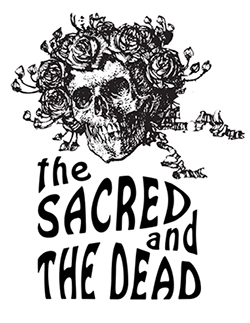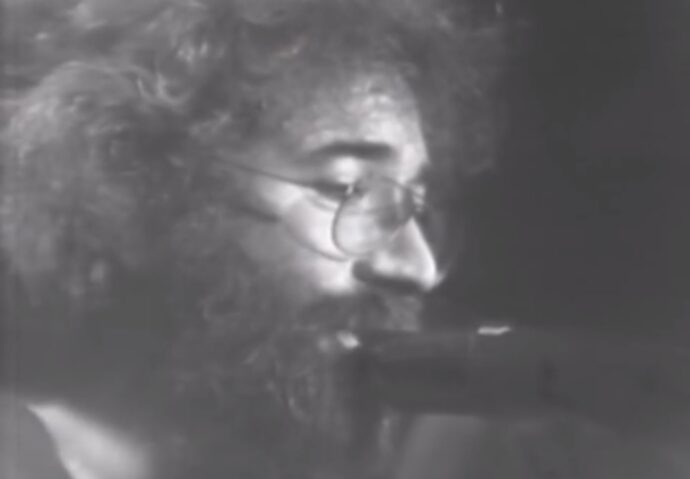Didn’t get to sleep that night till the morning came around.
Set out running but I take my time,
A friend of the Devil is a friend of mine.
If I get home before daylight,
Just might get some sleep tonight.…”
~ “Friend of the Devil”
Despite its provocative title, the Grateful Dead’s song “Friend of the Devil” actually can be heard as an invitation to listeners to consider the classic theological theme of love.
But it’s not romantic love or eros (important and wonderful as that is) the song extols, rather it is agape—the Greek word used in Christian theology to signify the selfless, sacrificial love that God feels for humankind.
Many of the band’s songs express solidarity with people on the margins of society: “Loser,” “Jack Straw,” “Tennessee Jed,” “Wharf Rat,” and “Friend of the Devil” each depicts the troubled lives of card players, petty criminals, gamblers, and other down-and-out souls in ways that evoke empathy.

A special series on religion and culture produced in collaboration with the Office of Religious Life at the University of Southern California
It is in that compassion, non-judgmental love, and grace extended to the dispossessed that I see a resonance with the teaching of my tradition, which repeatedly tells of Jesus’ radical commitment to love everyone, family, friend, or foe.
In the Sermon on the Mount, Jesus says that just as God “makes the sun rise on the evil and on the good, and sends rain on the righteous and the unrighteous,” we should reject worldly distinctions of status and privilege. Jesus tells us our love, like his, should not be only for those we know and like, but for our enemies, strangers, and the least of those among us.
From a pastor’s-eye perspective, the Grateful Dead and the subculture that has grown up around them during the half-century they’ve been playing together can be seen to exemplify this spirit of love for one another in community. “Friend of the Devil,” co-written by Jerry Garcia and the band’s longtime lyricist (and official fifth member) Robert Hunter, is a good example. We are invited to empathize with the outlaw who is running from the sheriff and established society:
“Got two reasons why I cry away this lonely night.
The first one’s named sweet Anne Marie
and she’s my heart’s delight.
Second one is prison, babe.
The sheriff’s on my trail.
And if he catches up with me I’ll spend my life in jail.”
The theme of alienation is expressed in the song’s focus on flight—from the law, from society, even from friends. And yet we are drawn to identification with an outlaw so alienated from the rest of the world, he believes the Devil is his only friend.
In my ministry as an Anglican deacon, leading ministries that offer food, clothing and, most important of all, fellowship to homeless folks living on the streets of Vancouver’s West Side, I have encountered this mindset many times. One of the principles we instill in our volunteers is the commitment to love—without conditions, without judgment, without patronizing. Building trust takes commitment that won’t mean anything if it comes with conditions. Genuine friendship means welcoming and loving folks as they are, not as we wish or hope them to be.
I have witnessed the transformation that happens when people stop seeing a homeless man or woman and start seeing a person, a friend, a mother’s child to whom life dealt a bad hand. People living rough on the streets almost universally have experienced some kind of trauma—domestic abuse, mental illness, addiction, racism, and longstanding poverty.
But the wonderful thing is, even in the midst of all this, so many of the people we meet and serve still can laugh, appreciate the earth’s beauty, enjoy a good book, or accept the love of a life partner. Over time, as physical needs are met, we see more laughter and less anger, more peace and less violence, more love and less hatred.
This is it means to build bridges of solidarity between the comfortable and the dispossessed.
And this is the kind of bridge that “Friend of the Devil” builds between the listener and the song’s narrator. When he hopes he can “get some sleep tonight,” we are there too, hoping and praying for this broken, tired, alienated friend to find some rest.
Through many decades of listening, watching, playing, reflecting, and even writing a book about the music and message of the Grateful Dead, I have come to the feel what I would call the spirit of the divine in and through the music.
The Grateful Dead has left us an enduring legacy, one whose power and longevity stems in significant part from the love they have shown and shared.





